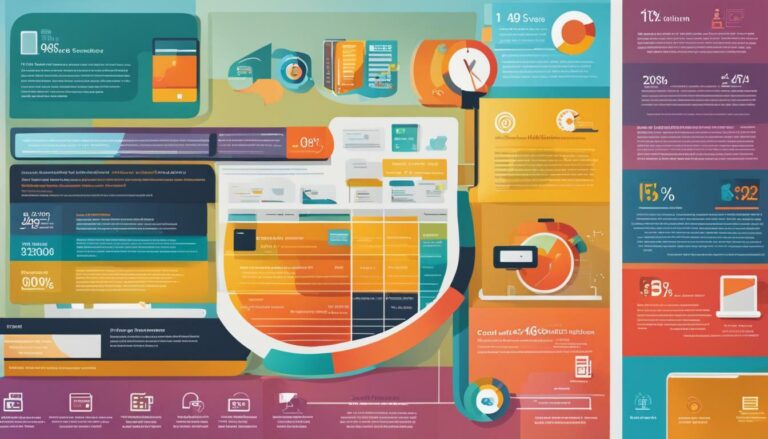Demystifying Credit Reporting for Unconventional Loans

Understanding how credit reporting works is essential when it comes to securing unconventional loans in the US loan market. Credit reporting plays a crucial role in the approval process for these loans, as it determines a borrower’s creditworthiness and loan eligibility. In this article, we will provide an overview of credit reporting for unconventional loans and explain the importance of credit history in non-traditional lending options.
- Credit reporting is crucial for securing unconventional loans
- A credit crunch can make it challenging to access credit
- Building business credit is important to protect against financial downturns
- Improving personal credit scores enhances loan eligibility
- Credit scores are not the only factor considered by lenders
The Role of Credit Reporting in Unconventional Loans
Credit reporting plays a crucial role in the approval process for unconventional loans, as lenders assess credit scores to determine loan eligibility. For borrowers seeking alternative lending options, understanding how credit reporting works and its implications on loan approval is essential.
During a credit crunch, when credit becomes scarce, lenders scrutinize credit scores even more closely. Factors like a recession, natural disaster, or rapid interest rate increases can contribute to a credit crunch, making it difficult for borrowers to access credit. To protect against financial downturns during a credit crunch, building business credit becomes paramount.
Building business credit involves actively working to improve your business credit score and taking steps to reduce costs and increase revenue. In addition to monitoring credit reports, keeping tabs on overall financial health is crucial. Metrics like cash flow, profitability, and expenditures should be regularly reviewed to ensure the financial stability of your business.
| Key Points: | Action Steps: |
|---|---|
| Increase business credit score | – Make timely payments – Keep credit utilization low – Maintain a positive payment history |
| Reduce costs and increase revenue | – Optimize operational efficiency – Explore revenue-generating opportunities – Evaluate and streamline expenses |
Improving personal credit scores is equally important to qualify for loans during a credit crunch. Timely bill payments, avoiding payday loans, reducing overall debt, and monitoring credit reports for errors are effective strategies to boost personal credit scores.
🚨 TUIC Errors + Low Credit Score?
CreditScoreIQ helps you build credit faster by reporting utility bills to all 3 bureaus—while you dispute errors.
Start Building Credit Today →“Paying your bills and debt repayments on time is crucial for maintaining a good credit score. Avoid payday loans, as they can appear as a red flag to lenders. Reducing overall debt and keeping credit card balances low can also have a positive impact on your creditworthiness.” – Financial Expert
It’s important to understand that credit scores are not the only factor considered by lenders. Other factors like income, affordability, and expenses also play a role in the loan approval process. However, maintaining a good credit score and adopting responsible financial habits can significantly increase your chances of securing a loan, even in unconventional lending scenarios.

Credit reporting is a vital component in the approval process for unconventional loans. During a credit crunch, understanding the importance of building business credit and improving personal credit scores becomes even more crucial. By actively managing credit scores, reducing costs, and maintaining financial health, borrowers can enhance their loan eligibility and secure favorable terms, even in challenging economic situations.
Building Business Credit for Unconventional Loans
Building a strong business credit history is essential for borrowers seeking unconventional loans, as it improves credit evaluation and increases the likelihood of loan approval. Lenders rely on credit reports to assess the creditworthiness of borrowers, and a positive credit history demonstrates responsible borrowing behavior, reducing the perceived risk for lenders. Here are some key strategies to help you build a solid business credit profile.
- Establish a Separate Business Entity: To build business credit, it is crucial to separate your personal and business finances. Register your business as a legal entity, such as a limited liability company (LLC) or corporation, to create a distinct identity.
- Open Business Accounts: Open business bank accounts and apply for a business credit card in the name of your company. Use these accounts exclusively for business-related transactions to establish a track record of responsible financial management.
- Pay Bills on Time: Timely payment of bills is a key factor in building a positive credit history. Pay your business expenses, such as rent, utilities, and suppliers, on time to demonstrate your ability to meet financial obligations.
- Manage Business Credit: Apply for trade credit with suppliers who report payment history to credit bureaus. Paying these accounts on time will help you build a strong credit profile.
Additionally, it is important to monitor your business credit reports regularly to ensure accuracy and detect any potential errors or fraudulent activities. Disputing inaccuracies promptly can help maintain the integrity of your credit profile.
Table: Key Steps to Building Business Credit
| Steps | Description |
|---|---|
| Establish a Separate Business Entity | Register your business as a legal entity to create a separate financial identity. |
| Open Business Accounts | Open dedicated business bank accounts and apply for a business credit card. |
| Pay Bills on Time | Ensure timely payment of business expenses to establish a positive payment history. |
| Manage Business Credit | Apply for trade credit with suppliers who report payment history to credit bureaus. |
By following these steps and maintaining a strong business credit profile, you can enhance your credit evaluation and increase your chances of loan approval in the alternative lending market. Remember, building business credit takes time and consistency, but the benefits can be invaluable when seeking unconventional loans.

During a credit crunch, borrowers must take proactive measures to maximize their loan eligibility and secure financing in non-traditional lending environments. With a decline in available credit, it becomes crucial to strengthen creditworthiness and showcase financial stability. Here are some strategies to navigate the challenges of a credit crunch:
1. Build Business Credit and Enhance Financial Health
Building a solid business credit history is instrumental in securing loans during a credit crunch. Lenders assess the creditworthiness of businesses by analyzing factors such as payment history, debt utilization, and credit utilization ratios. By consistently making timely payments and keeping credit utilization low, businesses can improve their credit scores and increase their chances of loan approval. It is also essential to monitor overall financial health, including cash flow, profitability, and expenses, to demonstrate stability and mitigate potential risks.
2. Strengthen Personal Credit Scores
In addition to business credit, personal credit scores play a significant role in loan eligibility. It is crucial to maintain a good personal credit score by practicing responsible financial habits. Paying bills and debt repayments on time, avoiding payday loans, and reducing overall debt can enhance creditworthiness. Regularly checking credit reports for errors and addressing any incorrect statements can also improve credit scores. It is advisable to avoid multiple credit applications in a short period as it can negatively impact credit scores.
3. Focus on Other Qualifying Factors
While credit scores are important, lenders also consider other factors when evaluating loan applications. During a credit crunch, it is crucial to highlight additional qualifying factors such as income, affordability, and expenses. Providing detailed information on revenue sources, demonstrating the ability to generate consistent cash flow, and showcasing a well-balanced budget can strengthen loan eligibility. By presenting a comprehensive picture of financial stability, borrowers can increase their chances of securing financing.
| Factors to Maximize Loan Eligibility | Actions to Take |
|---|---|
| Build Business Credit | – Make timely payments – Maintain low credit utilization – Monitor financial health |
| Strengthen Personal Credit | – Pay bills and debt on time – Reduce overall debt – Check credit reports for errors |
| Focus on Other Qualifying Factors | – Emphasize income and affordability – Showcase stable cash flow – Demonstrate a well-balanced budget |
During a credit crunch, borrowers face unique challenges, but by focusing on credit improvement, financial stability, and showcasing other qualifying factors, they can maximize their loan eligibility and secure financing in non-traditional lending environments. By adopting proactive measures and maintaining responsible financial habits, borrowers can navigate the impact of a credit crunch and increase their chances of obtaining the funding they need.

Improving personal credit scores is crucial for qualifying and obtaining favorable terms for unconventional loans, and borrowers can take certain steps to enhance their creditworthiness. One of the first steps in improving credit scores is to pay bills and debt repayments on time. Timely payments demonstrate responsible financial behavior and can have a positive impact on credit scores.
Additionally, it is important to avoid payday loans, as they can be seen as a red flag by lenders. Payday loans often come with high interest rates and can indicate financial instability. Instead, borrowers should focus on reducing overall debt by making consistent payments and developing a plan to pay off outstanding balances.
Checking credit reports for incorrect statements is another crucial step in improving credit scores. Errors on credit reports can negatively impact creditworthiness, so it is important to review reports regularly and dispute any incorrect information. Avoiding multiple credit applications in a short period of time is also important, as numerous inquiries can lower credit scores.

Remember that credit scores are not the only factor considered by lenders. In the mortgage application process, for example, while a higher credit score can improve approval chances, other factors such as income, affordability, and expenses are also taken into account. It is important to maintain overall financial health by monitoring metrics like cash flow, profitability, and expenditures.
Conclusion
By understanding the role of credit reporting, improving credit scores, and practicing responsible financial habits, borrowers can optimize their loan approval chances and secure unconventional loans in the US loan market.
Credit reporting plays a crucial role in the approval process for unconventional loans, and understanding how it works is essential for borrowers. A credit crunch occurs when there is a decline in the amount of credit available, making it difficult for borrowers to access credit. Factors like a recession, natural disaster, or rapid interest rate increases can contribute to a credit crunch.
Building business credit is important, as it can help protect against financial downturns during a credit crunch. Borrowers should work on increasing their business credit score and take steps to reduce costs and increase revenue. Keeping tabs on overall financial health, including metrics like cash flow, profitability, and expenditures, is important in addition to monitoring credit reports.
Improving personal credit scores is important for qualifying and getting favorable terms for loans during a credit crunch. It is recommended to pay bills and debt repayments on time, avoid payday loans, and reduce overall debt. Checking credit reports for incorrect statements and avoiding multiple credit applications in a short period of time can also help improve credit scores. In the mortgage application process, a higher credit score generally improves the chances of approval, but other factors like income, affordability, and expenses are also considered. Credit scores range from 300 to 850, with higher scores indicating better creditworthiness.
Credit checks can be hard or soft inquiries, with hard inquiries temporarily lowering credit scores. Steps can be taken to improve credit scores, such as avoiding opening too many accounts, addressing credit report errors, keeping balances low, and paying bills on time. Overall, it is important to remember that credit scores are not the only factor considered by lenders, and borrowers can take control of their financial future by focusing on responsible financial habits.
FAQ
What is the role of credit reporting in unconventional loans?
Credit reporting plays a crucial role in the approval process for unconventional loans. Lenders evaluate creditworthiness and determine loan eligibility based on credit scores for non-traditional lending options.
How can borrowers build business credit for unconventional loans?
To build business credit for unconventional loans, borrowers should focus on improving their credit evaluation. This can be done by optimizing their borrowing power and increasing their chances of loan approval in the alternative lending market.
How can borrowers maximize loan eligibility during a credit crunch?
To maximize loan eligibility during a credit crunch, borrowers should maintain creditworthiness by reducing costs, increasing revenue, and keeping tabs on their overall financial health. This includes monitoring credit reports and ensuring responsible financial habits.
How can borrowers improve personal credit scores for unconventional loans?
Borrowers can improve personal credit scores for unconventional loans by paying bills and debt repayments on time, avoiding payday loans, and reducing overall debt. Checking credit reports for errors and avoiding multiple credit applications in a short period can also help improve credit scores.
What factors besides credit scores are considered in the mortgage application process?
While a higher credit score generally improves the chances of approval in the mortgage application process, lenders also consider factors like income, affordability, and expenses. Credit scores ranging from 300 to 850 indicate creditworthiness, but other financial metrics are evaluated as well.
What should borrowers focus on for their financial future?
Borrowers should focus on responsible financial habits and overall financial health to take control of their financial future. While credit scores are important, adopting strategies like keeping balances low, paying bills on time, and avoiding opening too many accounts can help improve creditworthiness and loan eligibility.
Ready to Improve Your Credit?
Disputing TUIC errors is step one. Step two? Boost your score by reporting utility payments with CreditScoreIQ.
Get Started Now (Only $1 Trial) →3-bureau reporting • $1M identity insurance • Dark web monitoring






